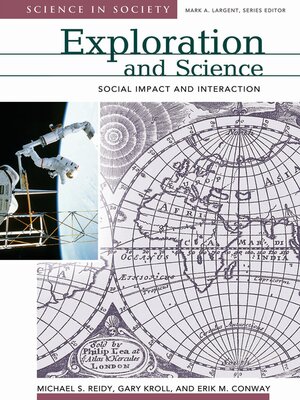Exploration and Science
ebook ∣ Social Impact and Interaction · Science and Society
By Michael Sean Reidy

Sign up to save your library
With an OverDrive account, you can save your favorite libraries for at-a-glance information about availability. Find out more about OverDrive accounts.
Find this title in Libby, the library reading app by OverDrive.



Search for a digital library with this title
Title found at these libraries:
| Library Name | Distance |
|---|---|
| Loading... |
This comprehensive volume explores the intricate, mutually dependent relationship between science and exploration—how each has repeatedly built on the discoveries of the other and, in the process, opened new frontiers.
A simple question: Which came first, advances in navigation or successful voyages of discovery? A complicated answer: Both and neither. For more than four centuries, scientists and explorers have worked together—sometimes intentionally and sometimes not—in an ongoing, symbiotic partnership. When early explorers brought back exotic flora and fauna from newly discovered lands, scientists were able to challenge ancient authorities for the first time. As a result, scientists not only invented new navigational tools to encourage exploration, but also created a new approach to studying nature, in which observations were more important than reason and authority.
The story of the relationship between science and exploration, analyzed here for the first time, is nothing less than the history of modern science and the expanding human universe.
A simple question: Which came first, advances in navigation or successful voyages of discovery? A complicated answer: Both and neither. For more than four centuries, scientists and explorers have worked together—sometimes intentionally and sometimes not—in an ongoing, symbiotic partnership. When early explorers brought back exotic flora and fauna from newly discovered lands, scientists were able to challenge ancient authorities for the first time. As a result, scientists not only invented new navigational tools to encourage exploration, but also created a new approach to studying nature, in which observations were more important than reason and authority.
The story of the relationship between science and exploration, analyzed here for the first time, is nothing less than the history of modern science and the expanding human universe.







